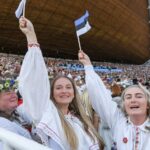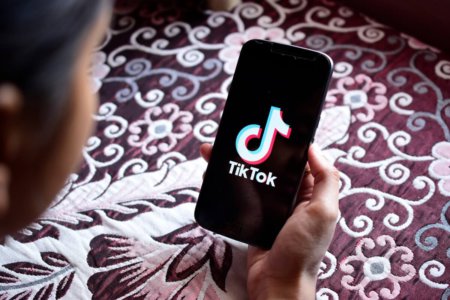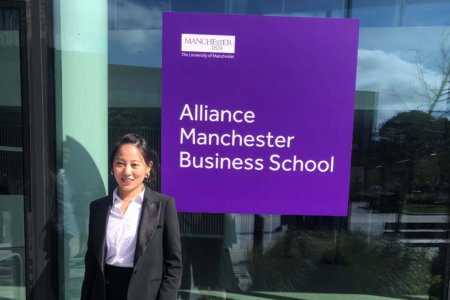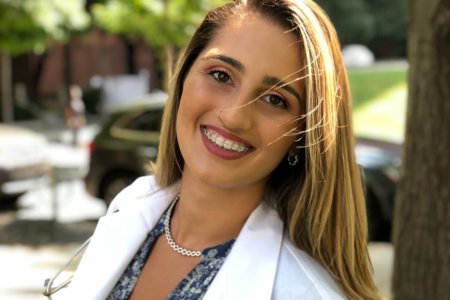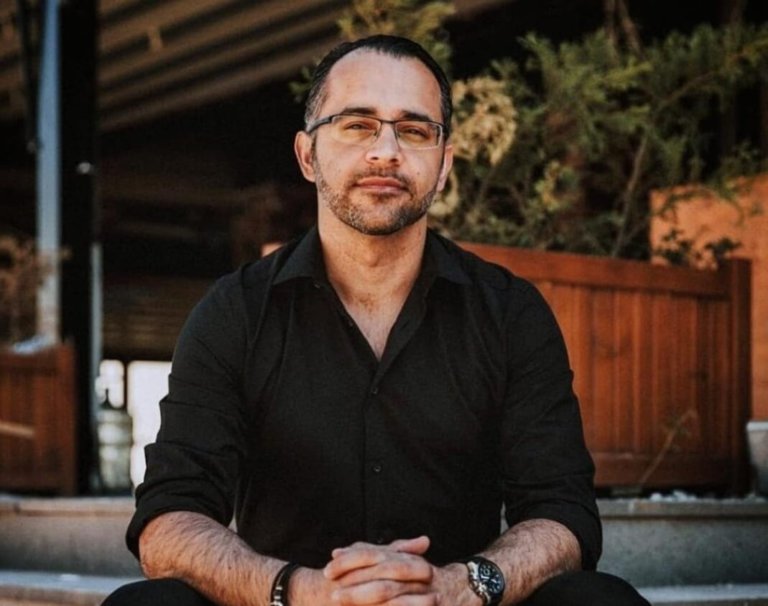
TikTok is known for dance challenges, easy-to-make recipes, song duets and fun life hacks. In South Africa, it’s also known for short clips of medical mythbusting — no, video games do not damage your eyes and milk does not build strong bones — by Dr. Siyamak Saleh.
With more than 1.3 million followers, Dr. Saleh — South Africa’s first TikTok verified doctor — tackles everything from morning-after pills to depression and diabetes. Some of his most popular videos (such as “Benefits of Video Games”) have more than seven million views.
As a medical frontliner in the fight against COVID-19 in South Africa, Dr. Saleh considers these videos a duty against the rife misinformation plaguing global vaccination efforts. With politicians calling the virus a hoax, and Tanzania’s president claiming they have “prayed” the coronavirus pandemic away, he believes it’s important for verified info to be as entertaining and viral as conspiracy theories.

Now, his success on TikTok has won him features in the British Medical Journal and featured on Good Morning America, as well as recognition by the World Health Organisation. Source: Dr. Siyamak Saleh
Not everyone believed in his approach at first. Friends and family were dismissive of TikTok and its focus on superficial topics like make-up tutorials or lip-syncing. Dr. Saleh, however, saw the platform’s infectious power — and he was right. Now, his success on TikTok has won him features in the British Medical Journal and featured on Good Morning America, as well as recognition by the World Health Organisation.
We caught up with Saleh to learn more about where his passion for medicine stemmed from, what it was like studying in Russia and what life-changing experiences he’s had since dominating a social media platform:
Where does your interest in the medicine industry stem from?
I decided to become a doctor from an early age. I always loved helping people and making them feel better. Having enneagram type 2 (considerate helper) says a lot about my personality and the joy I get out of it.
Obviously there is no better or more rewarding feeling of saving someone’s life. You are on top of the world as a real superhero.
As a TikTok verified doctor — one of South Africa’s firsts — how exactly do you use this platform to educate?
I joined TikTok in March last year as an escape from the stresses of being on the frontline against COVID-19. It all started with my daughter and I making fun videos exploring all the cool trends we saw.
Since then, I’ve grown my account to more than 1.3 million followers by educating, raising awareness and fighting stigmas — a very rewarding experience! Using my platform, I get to educate people on medical topics in short, simple and fun ways usually not exceeding 15 seconds.

“I decided to become a doctor from an early age. I always loved helping people and making them feel better,” he says about his interest in a career as a doctor. Source: Dr. Siyamak Saleh
Through these videos, I create medical videos on different conditions such as diabetes, women’s health, depression and much more. I also do my part in breaking the stigma of HIV and address COVID-19 along with vaccine misinformation. I try to do my best in debunking medical myths that we all grew up believing.
It feels amazing having such a huge platform to pursue my passion in educating people. My daughter Lea is excited and proud of how far I’ve come. She listens to all my interviews and gives me her best support. She also never misses an opportunity to remind me that she was the one who introduced me to this platform but she always does her best to encourage me.
Two of my favourite TikTok videos are:
@doctor.siya
and
@doctor.siyaThis vid made me emotional…It’s been an incredible journey!THANK YOU for all the love & support ❤ #flashback2020 #mytiktokjourney #isharedpositivity♬ how GREAT I am by Aj Greene – Aj Greene📺
Why did you choose to pursue your MD at Moscow State University in Russia?
I chose Moscow State University after extensive research. It’s the best in Russia and at that point was one of the top 50 in the world. They’ve also had many Nobel Prize winners study there especially from their chemistry, physics and maths faculties.
Do you think it would have made a difference if you studied at a local institution?
I did apply to a medical school in Kuwait but due to their policies, they only accept local citizens.
What fond memories during your time at uni in Russia stood out for you?
Teachers were very supportive whether you had an academic or personal question. My most fond memory is when some of them came to support our faculty’s football team which I was captain of in the finals. We lost in penalties but it’s still a great memory.

“I joined TikTok in March last year as an escape from the stresses of being on the frontline against COVID-19,” Saleh says. Source: Dr. Siyamak Saleh
What did you like most about Russia?
Studying at the best uni in Russia had its own perks. International students from all over the world would visit as a result of exchange programmes. Now I have friends from most parts of the world.
Also, Russian culture is so visible from the architecture, museums and theatres. What I personally enjoyed most though was the chance to attend European football matches like the Champions League.
Tell us about your career now and your research in cardiothoracic surgery.
My research on this type of surgery ended almost 10 years ago but am currently working on the frontline fighting COVID-19 in Cape Town, South Africa. I work in the murder capital of the country so I get to see all kind of trauma and emergencies besides coronavirus patients. I also get to enjoy the rewarding feeling of saving lives.
What were your most memorable non-academic experiences in Russia?
Captaining my faculty’s football team as I previously mentioned. Also training athletics at the uni with Irina Privalova (a European Olympic world champion who holds the record for 60 metres indoors). I was a sprinter and competed at a local and national level which is something I’m very proud of.
Tell me about your hometown.
Cape Town is one of the most beautiful places in the world. It’s indeed a rainbow nation as you see people from all backgrounds, races and religions living in harmony. The beautiful beaches, mountains like Table Mountain (one of the world’s Seven Wonders), the safaris, and so on.

His advice for international students? “My advice is not to give up on your dreams! Go for it, travel and pursue your passion,” he says. Source: Dr. Siyamak Saleh
What’s the local food in South Africa compared to Russia like?
Local foods are always amazing no matter where you are! As South Africa is diverse, the food ranges from samoosas and biryanis to “biltongs” (dried meat) and “boerewors” (sausage). My favourite local food in South Africa is “bredie” which is basically a meat stew with vegetables eaten with rice.
What’s one thing you missed from home while studying?
In the beginning it was difficult to be away from your family and friends especially since it was the first time for me to be away for such a long period of time. But I quickly made friends while still keeping in touch with my family and friends via social media.
What advice do you have for international students looking to pursue their studies abroad?
My advice is not to give up on your dreams! Go for it, travel and pursue your passion. This is exactly what I did and I don’t regret it one bit. I learnt from life as much as I learnt from medical school so I definitely encourage it.







